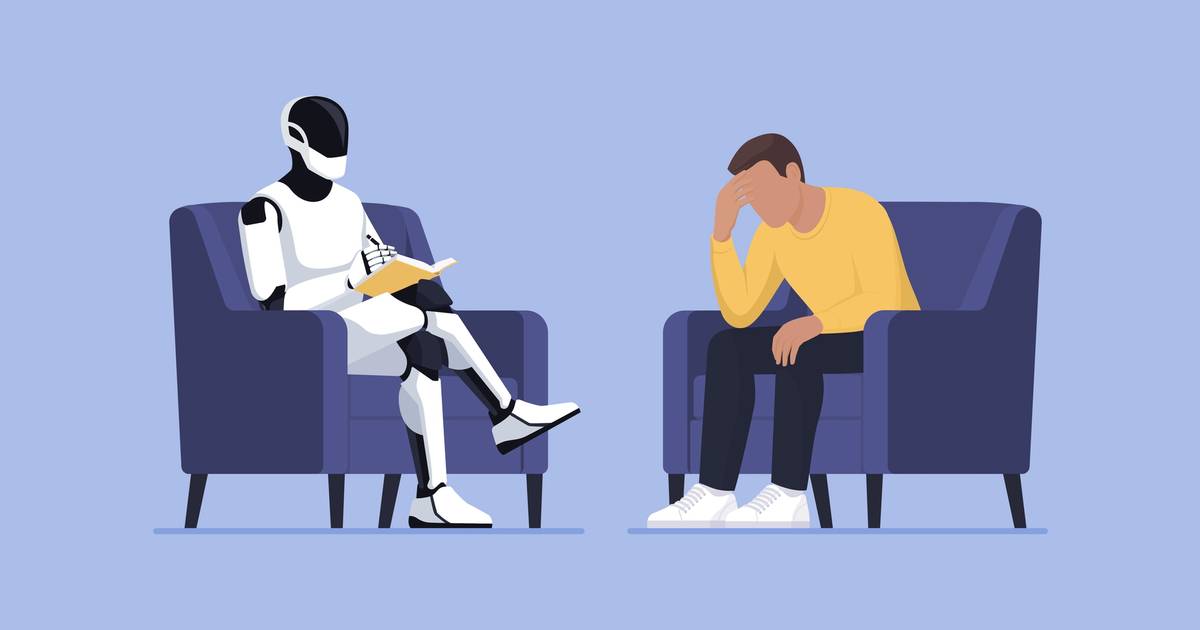Can AI Therapy Shape the Future of Mental Health Care?

Understanding the Dual Role of AI Chatbots in Mental Health Care
In recent years, the integration of artificial intelligence (AI) into various sectors has sparked significant discussions, particularly in the realm of mental health. With the emergence of AI chatbots as digital companions and therapy alternatives, experts are weighing the benefits and drawbacks of these technologies. This article delves into how bots can both assist and hinder mental health care, exploring their potential and limitations.
The Rise of AI Chatbots in Mental Health
AI chatbots have become increasingly popular as users seek accessible mental health support. Platforms like ChatGPT have garnered attention for their conversational capabilities. The anonymity and convenience offered by these digital tools are appealing to many, especially those hesitant to seek traditional therapy.
According to recent studies, a significant number of individuals report finding solace in conversations with AI chatbots. They appreciate the non-judgmental space these bots provide, allowing them to express their feelings openly. This acceptance can be particularly vital in a society where mental health stigma remains prevalent.
How AI Chatbots Can Help
AI chatbots offer numerous advantages for mental health support:
- Accessibility: Bots are available 24/7, making them a convenient option for those who may not have immediate access to a therapist.
- Anonymity: Users can engage with bots without revealing their identity, creating a safe space for honest communication.
- Cost-Effective: Many AI chatbots are free or low-cost compared to traditional therapy sessions, lowering the barrier to entry for mental health support.
- Consistent Availability: Chatbots can provide consistent support, helping users track their moods and thoughts over time.
Potential Risks and Limitations
Despite the benefits, the use of AI chatbots for mental health support is not without its challenges. Experts caution about several risks:
- Lack of Human Empathy: While bots can simulate conversation, they lack genuine empathy and emotional understanding, which are crucial in therapy.
- Overreliance: Some users may become overly dependent on chatbots, neglecting the need for professional help.
- Inaccurate Responses: AI does not always provide accurate or appropriate responses, which can lead to misunderstandings or worsen a user's condition.
- Privacy Concerns: Users must be cautious about sharing sensitive information, as data security and privacy are ongoing concerns in the digital realm.
The Role of Human Therapists in the Age of AI
While AI chatbots can provide support, they cannot replace the nuanced care offered by human therapists. Trained professionals possess the skills to navigate complex emotions and mental health issues through established therapeutic methodologies. Human therapists can also provide personalized treatment plans, something that AI currently cannot replicate.
Complementary Tools
Experts suggest that AI chatbots should be viewed as complementary tools rather than replacements for traditional therapy. They can serve as an additional resource for individuals seeking support between therapy sessions or as a first step for those hesitant to engage with a therapist.
Integrating AI into Traditional Therapy
Some therapists are beginning to incorporate AI chatbots into their practice. This integration can enhance the therapeutic experience by:
- Providing Homework: Therapists can assign tasks for clients to complete using chatbots, reinforcing skills learned in sessions.
- Monitoring Progress: AI can assist in tracking a patient’s mood and progress, providing therapists with valuable data for adjustment of treatment plans.
- Offering Immediate Support: Bots can offer immediate coping strategies when clients need support outside of scheduled sessions.
Future Directions for AI in Mental Health
The future of AI in mental health is filled with possibilities. As technology continues to advance, the effectiveness and safety of AI chatbots are likely to improve. Researchers are exploring how to enhance the emotional intelligence of these bots, creating a more supportive experience for users.
Ethical Considerations
As the use of AI chatbots grows, ethical considerations must be addressed. Key areas of focus include:
- Informed Consent: Users should be aware of the limitations of AI chatbots and the nature of their interactions.
- Data Privacy: Ensuring robust measures are in place to protect user data is crucial for maintaining trust.
- Regulation and Oversight: Establishing guidelines for the development and implementation of AI in mental health care will be essential to safeguard users.
Conclusion: A Balanced Approach to AI in Mental Health
The conversation surrounding AI chatbots in mental health is complex. While they present opportunities for increased accessibility and support, it is vital to remain vigilant about their limitations and risks. A balanced approach, integrating AI technology with traditional therapeutic practices, may provide the most effective solution for those seeking mental health support.
As we continue to navigate this evolving landscape, it’s essential to prioritize the well-being of users and ensure that mental health resources remain effective, ethical, and compassionate. How do you envision the future of AI in mental health care impacting your life or those around you? #MentalHealth #AI #Therapy
FAQs
Can AI chatbots replace therapists?
AI chatbots cannot fully replace therapists due to their lack of emotional intelligence and empathy. They can, however, complement traditional therapy by providing additional support and resources.
Are AI chatbots safe to use for mental health support?
While many AI chatbots are designed with user safety in mind, it is essential to consider privacy concerns and the limitations of AI in understanding complex emotions.
How can AI chatbots improve mental health care?
AI chatbots can improve mental health care by offering accessible support, helping users track their emotions, and providing immediate coping strategies, making mental health resources more readily available.
Published: 2025-08-06 02:01:46 | Category: Uncategorized



